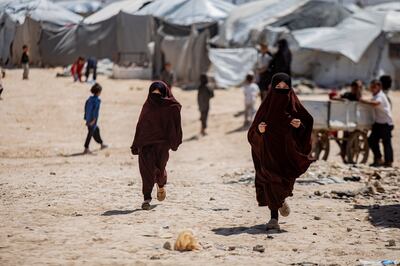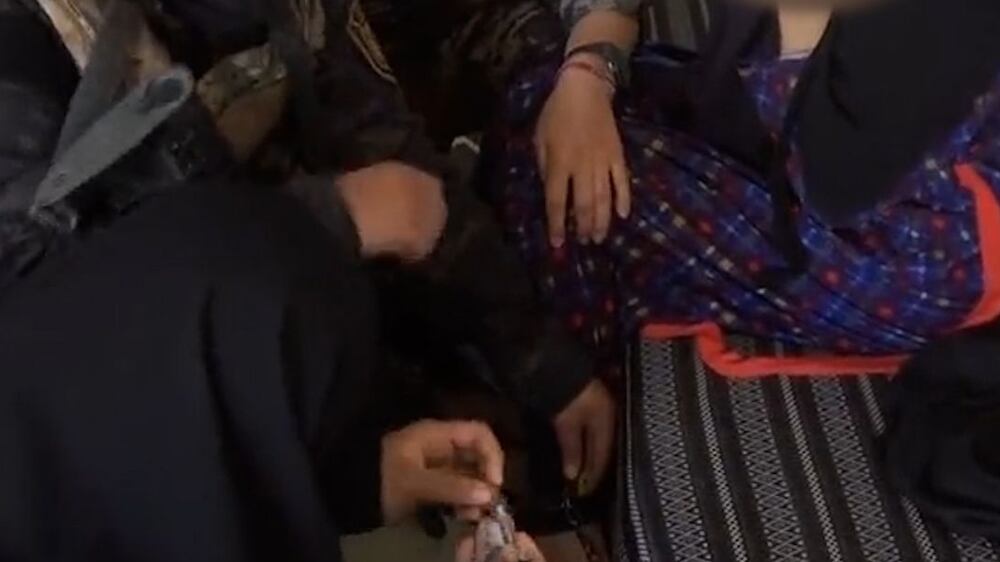Urgent political action and solutions are needed to ensure that more than 50,000 inhabitants of Syria’s Al Hol camp have a way out, the International Committee of the Red Cross said on Friday.
Al Hol is the largest displacement camp in the country. The camp in north-eastern Syria holds mostly Syrians and Iraqis, but it is also home to thousands of Europeans and Asians with suspected family ties with ISIS.
Those inside the camp must be considered by the international community and nation states as “human beings” to ensure their safe repatriation, Suhair Zakkout, a spokeswoman for the ICRC in Syria told The National.
“The most important thing and the concern of the ICRC is that countries and governments should not turn their backs on the population and their citizens who are inside and to start thinking and dealing with these women and children,” she said.
Some of those living inside the camp are family members of suspected ISIS militants, but others are displaced Syrians and Iraqi refugees with nowhere to go. It is hard to know the exact number of people linked to ISIS.
In total, it has been estimated that the camp holds 23,000 Syrians, nearly 27,000 Iraqis and around 10,000 people from about 60 other countries, including the UK, according to Human Rights Watch.
“As human beings we have to show the human side to not let those people down by just forgetting them,” Ms Zakkout said.
“We are not touching upon any legality or any legitimacy of those people. What we are talking about is humanity and this is what we all share together when dealing with this population.”

For years, the ICRC, the UN and other prominent aid agencies have been calling on countries to repatriate their citizens held inside the camp.
But some European countries have denied the requests. France, for example, refused to repatriate some French women and children last year.
Paris had argued that citizens who joined extremist networks in Syria and Iraq would pose security risks if returned home.
The move was condemned by the European Court of Human Rights, which said there should be safeguards against any potentially “arbitrary” decision-making.
“A colleague from the mental health programme described the situation for children inside as a lost generation. They are without hope,” Ms Zakkout said.
Kurdish officials in Syria run the camp and said that keeping the camp open posed a security risk. They said that the international community must step up their efforts to facilitate the safe and dignified repatriation of their nationals.
The camp is home to 53,000 people, according to the ICRC. Many have fled ISIS-held areas in Syria and Iraq as intense fighting broke out in the region to curb the extremist group's activities.
Many refugees cannot return home as it remains unsafe for them.
Women freed after being held by ISIS at Al Hol camp

“The majority or two thirds of people inside are estimated to be women and children. And for those children, the majority are below the age of five years and are living in very harsh conditions,” Ms Zakkout said.
“Imagine that you're confined in a place for so many years, you have already fled many times to seek shelter to survive and you are almost forgotten by everyone except part of the humanitarian organisations.”
Aid groups are attempting their best to respond to the emerging needs of the population but that is not enough, Ms Zakkout said.







